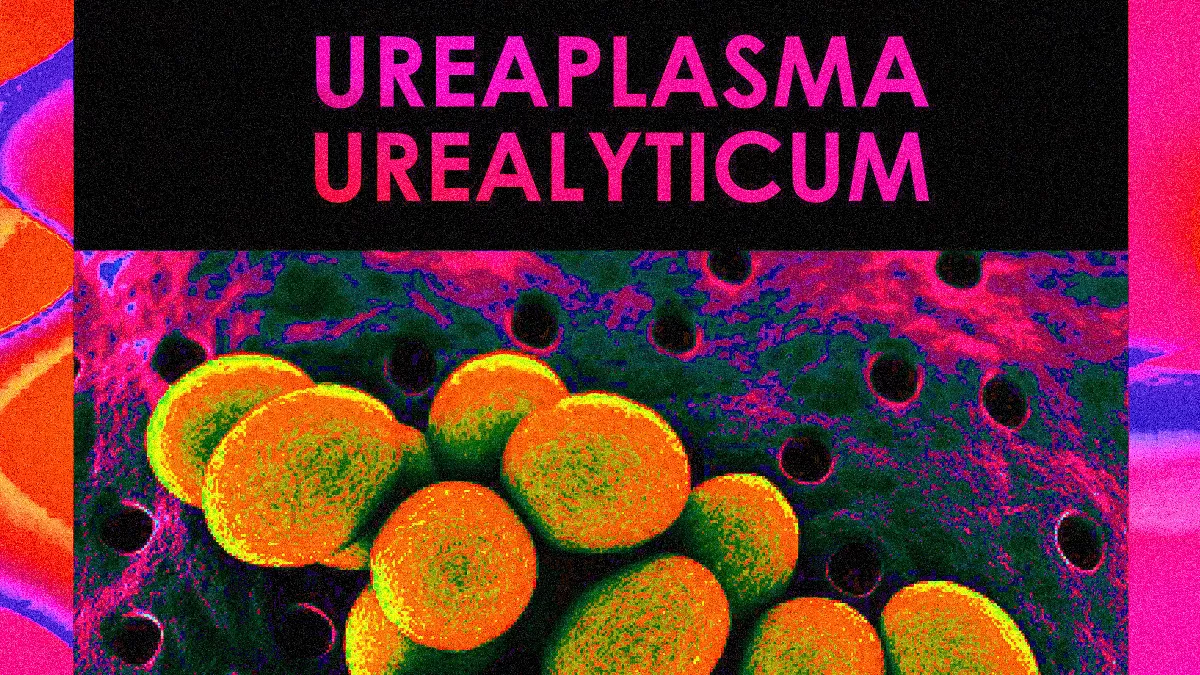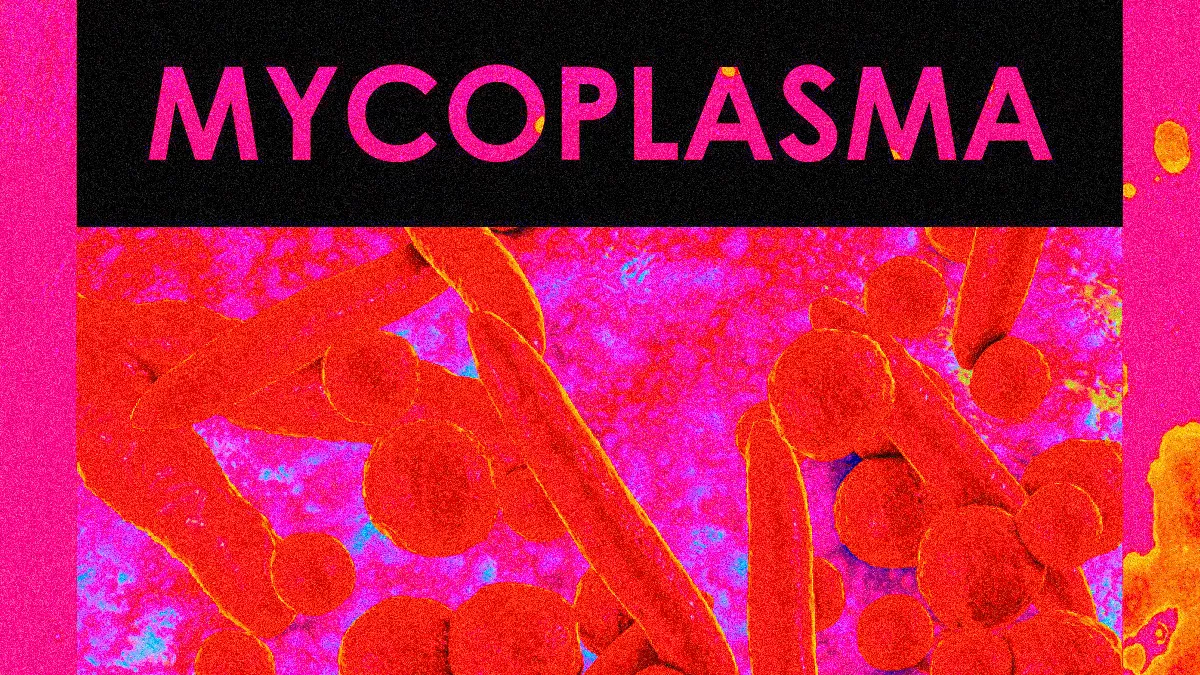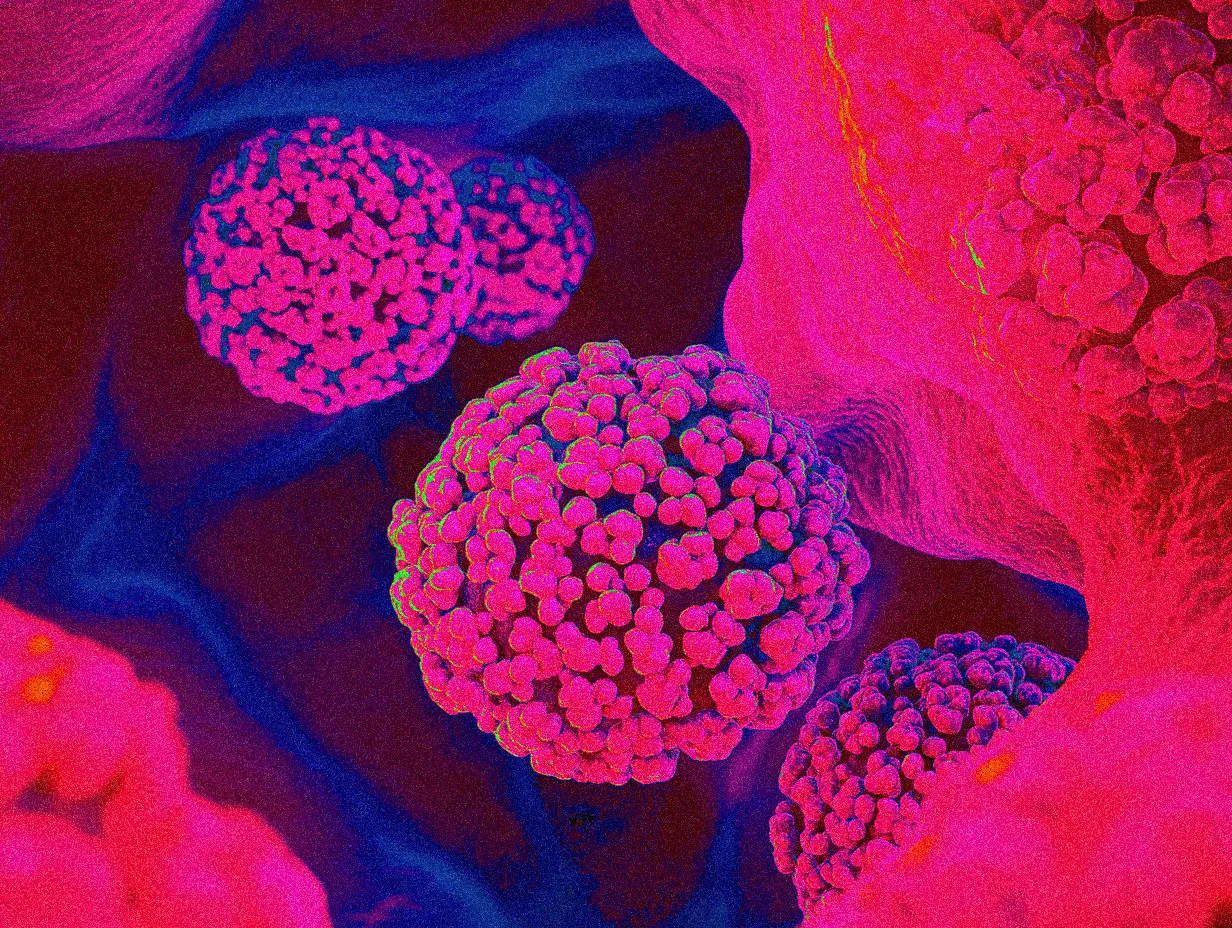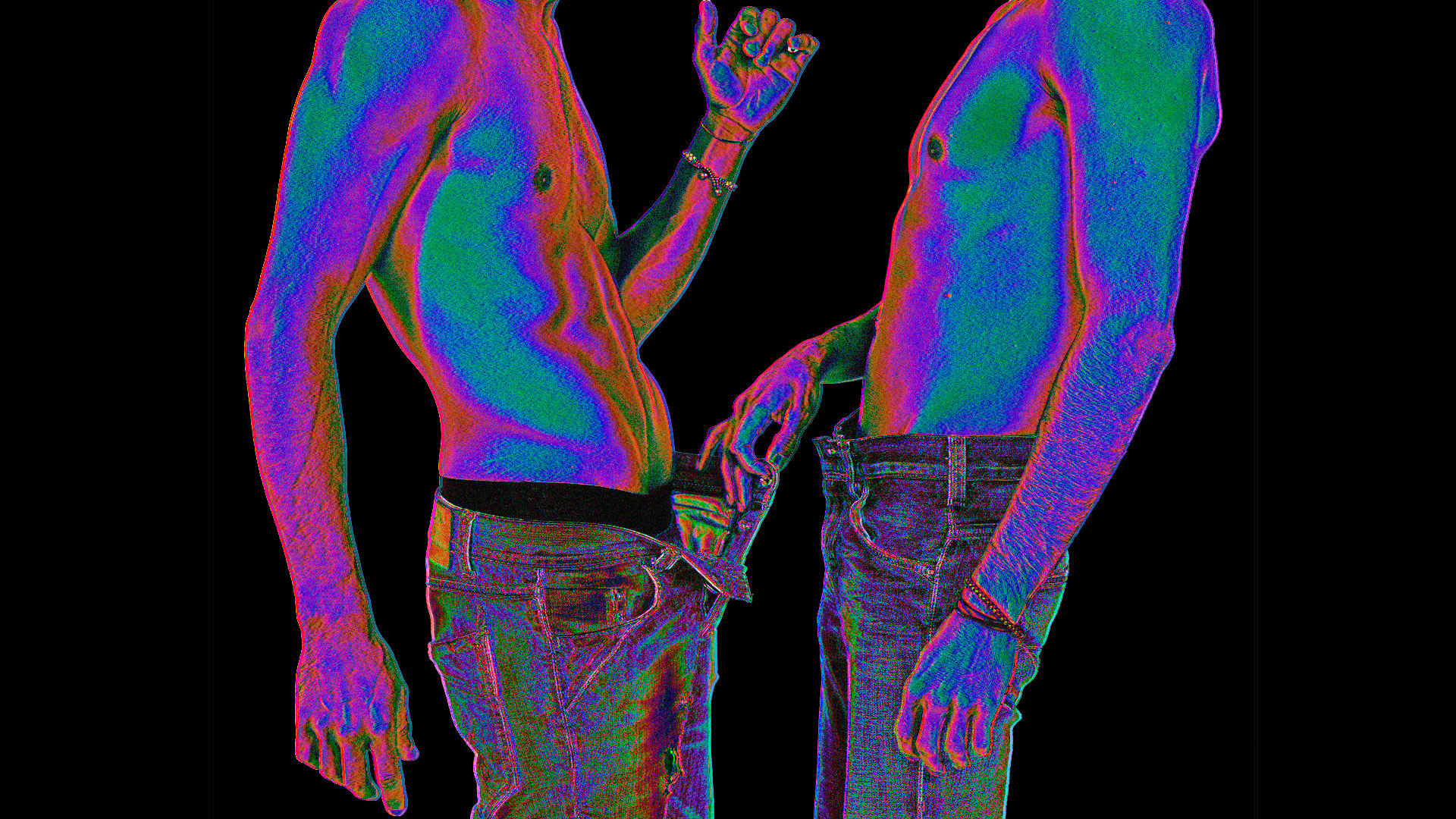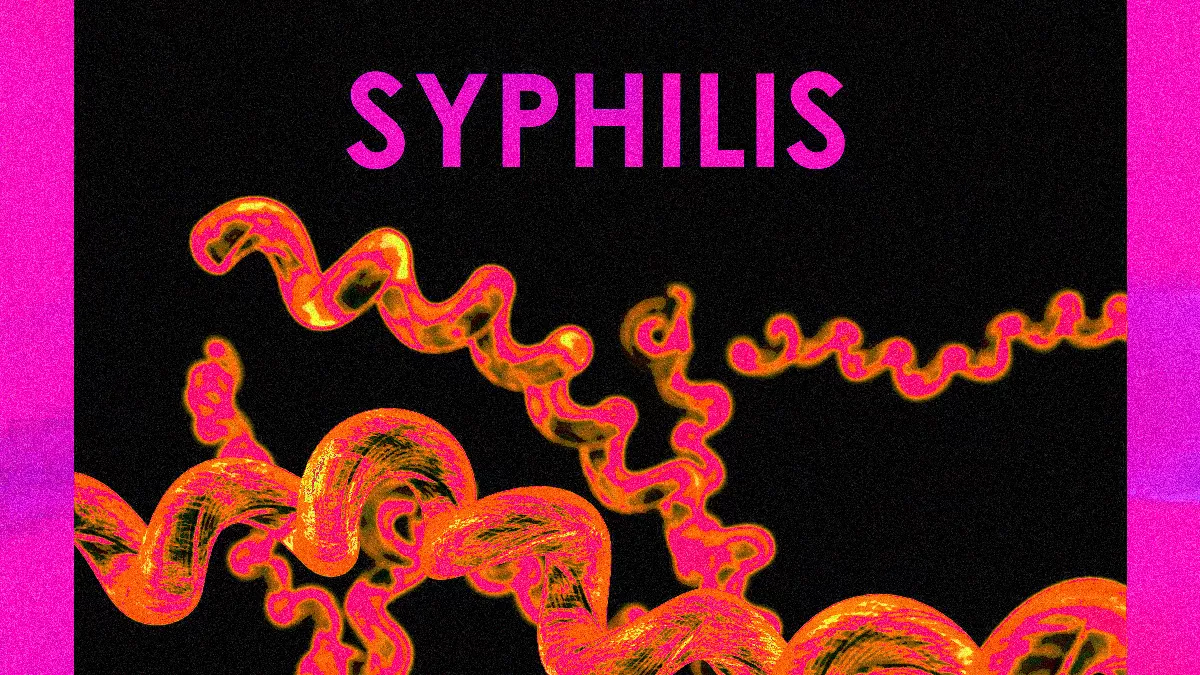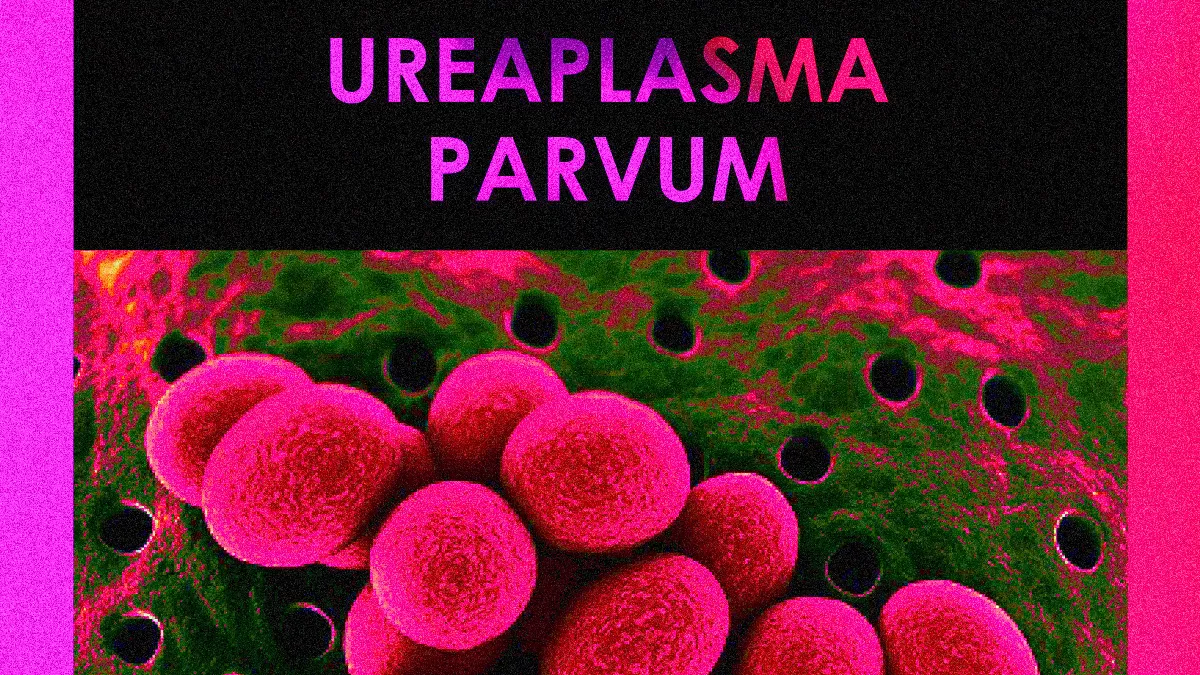Types of STDs - How many types of STDs are there?
18104
More than 30 different bacteria, viruses, and parasites are known to be transmitted through sexual contact.
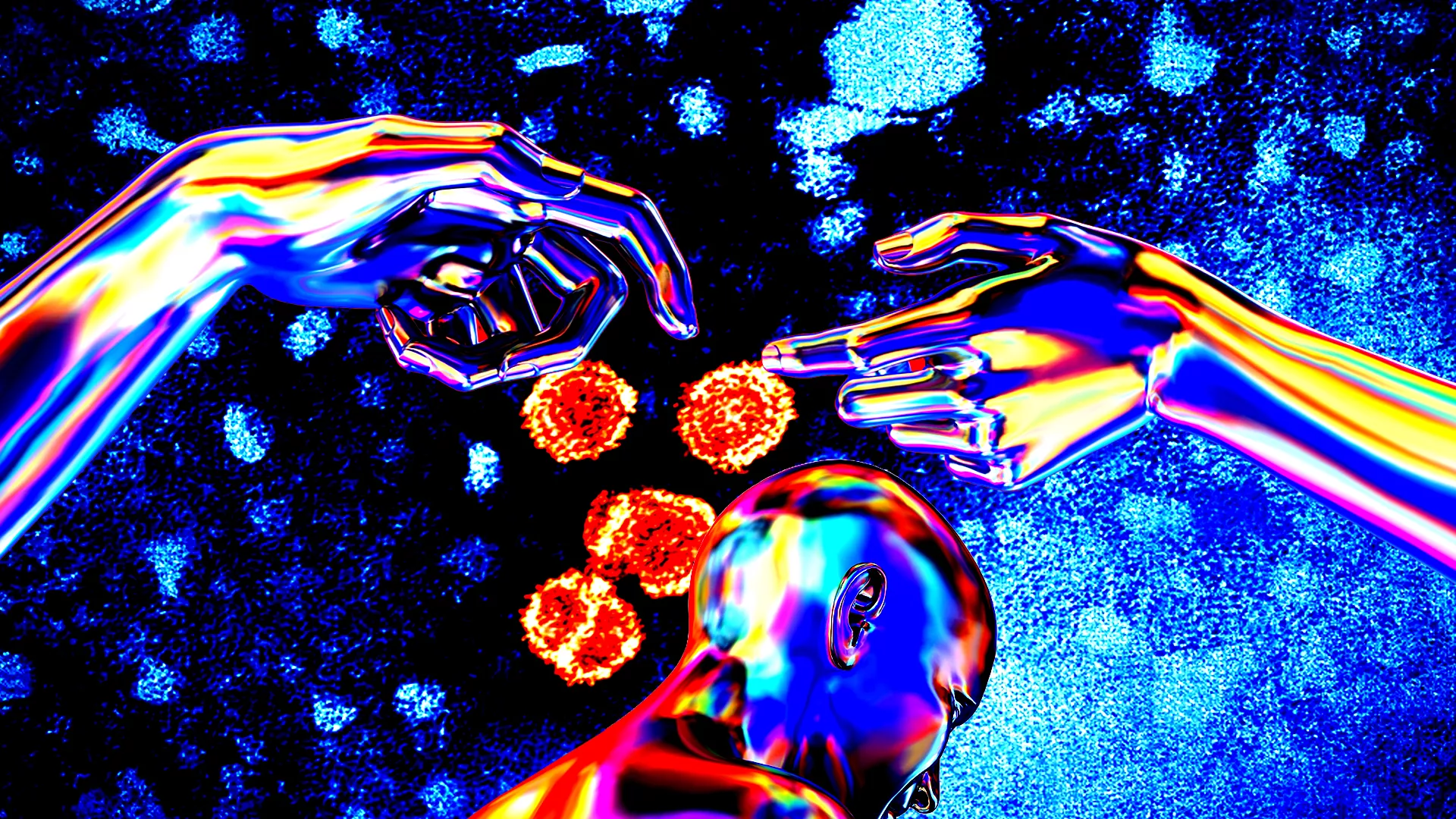
Types of STDs: How many types of STDs are there?
Sexually transmitted infections (STIs), also known as sexually transmitted diseases (STDs), are infections transmitted through sexual contact. They are commonly spread during vaginal, oral, or anal sex, but they can also be transmitted through other forms of sexual contact involving the penis, vagina, mouth, or anus. This occurs because certain STIs, such as herpes and HPV, can spread through skin-to-skin contact.
In some cases, STIs can be passed from a pregnant individual to their baby during pregnancy or childbirth. Additionally, certain STIs may be transmitted through breastfeeding, blood transfusions, or sharing needles.
Also called: sexually transmitted infections, STDs, and venereal disease.
There are over 20 types of STIs, including Chlamydia, Genital, Herpes, Gonorrhoea, HIV, HPV, pubic lice, syphilis, and trichomoniasis.
Contact us at info.bkk@pulse-clinic.com or chat on your preferred platform:
![]() +66 65 237 1936
+66 65 237 1936  @PULSEClinic
@PULSEClinic ![]() PulseClinic
PulseClinic
Types of Sexually Transmitted Diseases
Bacteria
- Syphilis (Treponema pallidum)
- Gonorrhoea (Neisseria gonorrhoeae)
- Non-gonococcal Urethritis (NGU);
- Chlamydia trachomatis
- Ureaplasma urealyticum
- Mycoplasma genitalium
- Chancroid Haemophilus ducreyi
- Lymphogranuloma venereum - LGV (Chlamydia trachomatis)
- Granuloma inguinale (Calymmatobacteria granulomatis)
Virus
- Genital herpes (Herpes simplex virus type 1 & 2; HSV I & II)
- Molluscum contagiosum (Molluscum contagiosum virus)
- Genital warts (Human papilloma virus, HPV)
- Viral (Hepatitis A, B and C viruses—HAV, HBV, and HCV)
- HIV infection and AIDs (Human immunodeficiency virus type 1 & 2)
Fungi
- Vaginal candidiasis (Candida albicans)
- Penile candidiasis (Candida albicans)
Protozoa
- Trichomoniasis (Trichomonas vaginalis)
Parasites
- Scabies (Sarcoptes scabiei)
- Pubic lice infestation (Pediculosis pubicyphilis)
Symptoms of Sexually Transmitted Infections (STIs)
Sexually transmitted infections (STIs) may not always cause noticeable symptoms or might only produce mild ones. This means you could have an STI without realising it. Even in the absence of symptoms, STIs can still cause harm and be transmitted to others during sexual activity.
When symptoms do occur, they may include:
- Unusual discharge from the penis or vagina
- Sores or warts in the genital area
- Painful or frequent urination
- Itching and redness in the genital area
- Blisters or sores in or around the mouth
- Abnormal vaginal odor
- Anal itching, soreness, or bleeding
- Abdominal pain
- Fever
Diagnosing Sexually Transmitted Infections (STIs)
If you are sexually active, it’s essential to discuss your risk for STIs with your healthcare provider and determine whether testing is necessary. This is particularly important since many STIs often show no symptoms.
STIs can sometimes be identified during a physical exam or through specific STI tests. Diagnostic methods may include:
- Microscopic examination of a sore or a sample swabbed from the vagina, penis, or anus
- Blood tests to detect certain types of STIs
What to Expect During STI Testing
STI testing typically requires a visit to a healthcare provider or health clinic. For more information or assistance, feel free to contact PULSE Clinic to discuss your sexual health.
Tests may involve providing blood or urine samples, and in some cases, swabs of the affected area. A physical examination may also be conducted to check for visible symptoms.
Here are the tests commonly used to diagnose STIs:
- Syphilis: a blood test sent to a lab or a swab of the affected area.
- Chlamydia: Swab of the affected area or urine sample.
- Gonorrhoea: Swab of the affected area or urine sample.
- HIV:
- A blood sample was sent to a lab.
- Rapid testing available at some clinics involves a finger prick to obtain a blood sample for a point-of-care (POC) test. Results are typically available within minutes. If the POC test is positive, a confirmatory blood test is required and sent to a lab.
- Genital herpes (with symptoms): Swab of the affected area.
- Trichomoniasis (Trich): Swab of the infected area.
- HPV (genital warts): visual examination.
- HPV (Cervical Cancer): Swab of the affected area.
A healthcare professional will guide you on which tests are appropriate based on your symptoms and risk factors. For personalised advice, reach out to PULSE Clinic to ensure your sexual health is in check.
Sexually transmitted infections are a very frequent and underdiagnosed cause of illness worldwide. A high number of detection methods and a large range of specimens in which sexually transmitted infections can be determined are available at the moment. Polymerase chain reaction (PCR) can be performed on first-void urine, throat swab, vaginal and cervical swab, and anal swab, offering the advantage of being painless, non-invasive, self-collectible, and having high sensitivity and specificity.
Most of the time, people with sexually transmitted infections do not have any symptoms; this is called asymptomatic infection, which means the person carries infections without having any symptoms but can pass them on to their partners through kissing and/or oral sex.
Asymptomatic testing—getting tested even though you don't have any symptoms—is a good idea to make sure you DO NOT have any infections hidden in your throat, vaginal canal, cervix, urethra, and urine, as well as anal canal. If the test detects DNA of any bacterial or viral STIs, it will be a good chance for you to start treatment in time and tell your partner to get treatment as well to prevent transmission to other people in the community. This is a very helpful way to reduce STI transmission in the community.
Nucleic acid amplification tests, also known as NATs or NAATs, are used to identify small amounts of DNA or RNA in test samples. They can, therefore, be used to identify bacteria, viruses, and other pathogens even when the material of interest is present in very small amounts. When it comes to STD testing, there are NAAT tests available that can detect a variety of different STDs. Most urine tests for STDs are performed using nucleic acid amplification tests.
Trust PULSE CLINIC to take care of your health like other 45000 people from over 130 countries. We provide discreet professional service with high privacy. Here to help, not to judge.
WHAT ARE URINE PCR & SWAB PCR TEST?
PCR stands for Polymerase Chain Reaction; it is also called Nucleic Acid Amplification Test (NAAT) and is a modern molecular technique used to detect a particular pathogen (virus or bacterium) in a specimen of blood, body fluid, or other tissue. This technique detects virus/bacterial DNA. The nucleic acid amplification test (NAAT) is the recommended method of testing for Chlamydia, Gonorrhoea, Ureaplasma, Mycoplasma, and Trichomonas, among other infections. It has very high specificity (higher than 99.5%) and higher sensitivity and accuracy than culture (old diagnosis technique). In both men and women, painless urine PCR (yeah, you just have to pee) and genital PCR were significantly more sensitive than culture. It can detect infection whether the organism is dead or alive! This is mostly done in first-world countries and medical schools.
What infection can the DNA PCR detect?
In people who have infection with the symptom (symptomatic infection) and without symptoms (asymptomatic infections), DNA PCR TEST can detect;
- Chlamydia Trachomatis (serovars A-K) which causes chlamydia
- Chlamydia Trachomatis (serovars L1-L3) which causes LGV or Lymphogranuloma venereum
- Neisseria gonorrhoeae which causes Gonorrhea
- Trichomonas vaginalis which causes Trichomoniasis
- Mycoplasma hominis (read more)
- Mycoplasma genitalium (an emerging STI)
- Ureaplasma urealyticum (read more)
- Ureaplasma parvum (read more)
- Herpes Simplex Virus type I (read more)
- Herpes Simplex Virus type II (read more)
- Treponema pallidum which causes syphilis
- Haemophilus ducreyi which causes chancroid
- Cytomegalovirus (CMV) (read more)
- Varicella-Zoster Virus (VZV) (read more)
- Candida albicans (read more)
- Candida dubliniensis (read more)
- Candida glabrata (read more)
- Candida krusei (read more)
- Candida lusitaniae (read more)
- Candida parapsilosis (read more)
- Candida tropicalis (read more)
- Atopobium vaginae (read more)
- Bacterial vaginosis (associated bacteria 2) (read more)
- Bacteroides fragilis (read more)
- Gardnerella vaginalis (read more)
- Lactobacillus (read more)
- Megasphaera Type 1 (read more)
- Mobiluncus (read more)
Pricelist
| PCR for 28 Infections (STD Multiplex) | Online results | |||
| Same day** | Next day | 3 days | 7 days | |
| Throat | 14,000 THB | 11,600 THB | 10,480 THB | 9,200 THB |
| Urine | 14,000 THB | 11,600 THB | 10,480 THB | 9,200 THB |
| Anal Swab | 14,000 THB | 11,600 THB | 10,480 THB | 9,200 THB |
| Vaginal Swab | 14,000 THB | 11,600 THB | 10,480 THB | 9,200 THB |
| Cervical Swab | 14,000 THB | 11,600 THB | 10,480 THB | 9,200 THB |
| Sperm | 14,800 THB | 12,640 THB | 11,600 THB | 10,080 THB |
| Skin Lesion Swab | 14,000 THB | 11,600 THB | 10,480 THB | 9,200 THB |
| Pooling | 15,600 THB | 13,280 THB | 12,400 THB | 10,800 THB |
| PCR for 2 Infections (Gonorrhea/Chlamydia) | Same day | Next day | 3 days | 7 days |
| Throat | 5,690 THB | 4,990 THB | 3,990 THB | 3,300 THB |
| Urine | 5,690 THB | 4,990 THB | 3,990 THB | 3,300 THB |
| Vaginal and Cervical Swab | 5,690 THB | 4,990 THB | 3,990 THB | 3,300 THB |
| Rectal Swab | 5,690 THB | 4,990 THB | 3,990 THB | 3,300 THB |
| Sperm* | 6,200 THB | 5,150 THB | 4,100 THB | 3,690 THB |
| Skin lesion Swab | 5,690 THB | 4,990 THB | 3,990 THB | 3,300 THB |
Prices are in Thai Baht
- Price per one location of testing
- Online results will be available at PULSE Online Portal (POP) and E-Doc mobile application
- For semen/sperm specimens, please avoid all sexual activity that results in ejaculating semen/sperm for 2-3 days before providing the sample.
- For PCR28 same-day results, the sample must be taken at the clinic before 3 p.m.
**Same-day and next-day results are only available at the Bangkok and Pattaya branches
Contact us at info.bkk@pulse-clinic.com or chat on your preferred platform:
![]() +66 65 237 1936
+66 65 237 1936  @PULSEClinic
@PULSEClinic ![]() PulseClinic
PulseClinic
PEP & PrEP for HIV Prevention
What are PrEP and PEP?
PrEP and PEP are medications designed to prevent HIV, each serving a distinct purpose in different scenarios:
- PrEP (Pre-Exposure Prophylaxis): PrEP is for individuals who are HIV-negative but at risk of contracting the virus. This preventive treatment significantly reduces the risk of infection. PrEP is available as a daily pill or a bi-monthly injection. If exposure to HIV occurs while on PrEP, the medication helps prevent the virus from establishing itself and spreading in the body.
- PEP (Post-Exposure Prophylaxis): PEP is intended for individuals who may have been exposed to HIV. It is strictly for emergencies and must be initiated within 72 hours of potential exposure to be effective.
Buy PrEP online for HIV Prevention
Pulse Clinic now operates 20 branches across Thailand, Hong Kong, Malaysia, and Singapore, open 7 days a week to serve your healthcare needs. If you're unable to visit our clinics in person, you can conveniently purchase PrEP online from our licensed clinics.
Important Steps for Online PrEP Orders:
- Ensure we have your prescription or lab results before placing an order.
- Provide a copy of your passport and lab results from your doctor or lab, or send us a prescription from your healthcare provider.
- Once we verify your results, we can supply you with 3 to 6 months’ worth of PrEP each time.
PULSE Clinic now offers online PrEP medication refills. For more information about the medication and ordering process, please email pulseliving@pulse-clinic.com or chat on your preferred platform.
| Medication | Price |
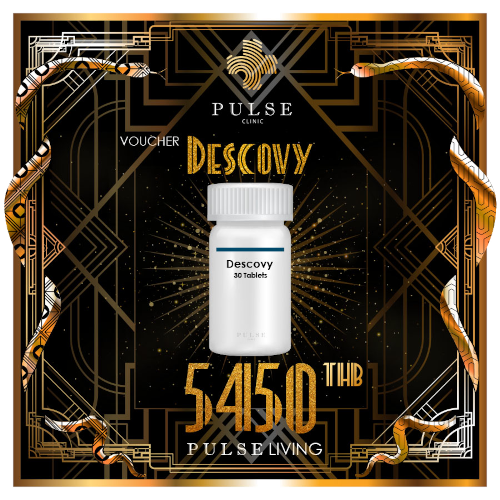 | Descovy (Latest Version of PrEP) 5,450 THB |
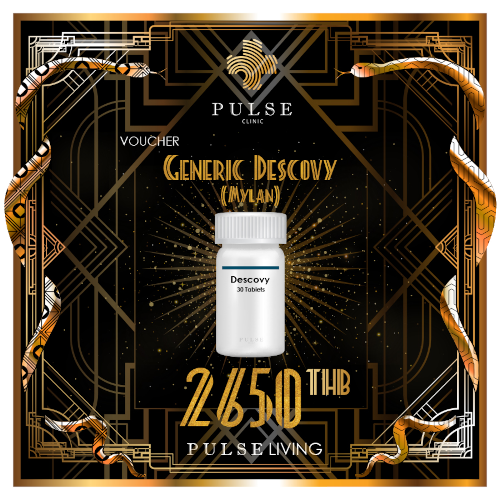 | Generic Descovy (Mylan) 2,650 THB |
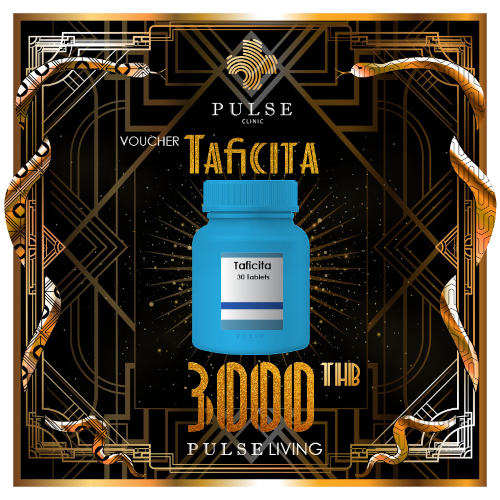 | Taficita (ARV for HIV Treatment) 3,000 THB Also check out Poz and Proud: Get HIV Care from PULSE Clinic for more information about HIV treatment |
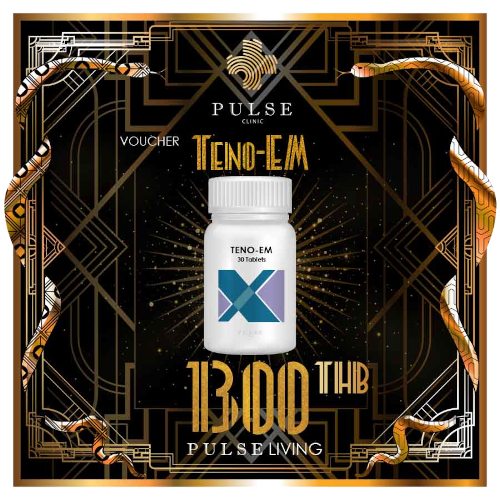 | Teno-EM (Generic HIV PrEP) 1,300 THB |
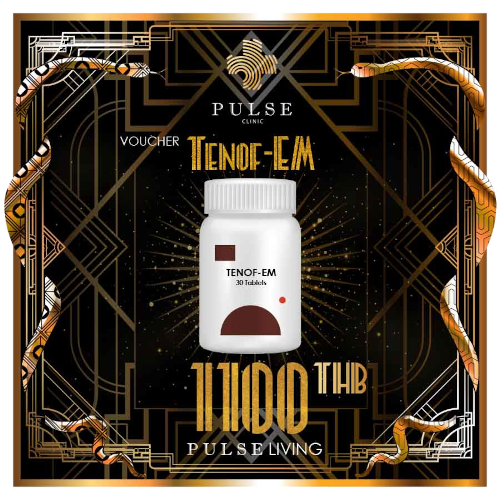 | Tenof-EM (Generic HIV PrEP) 1,1000 THB |
![]() +66-84-226-2569
+66-84-226-2569  @pulserx
@pulserx ![]() PulseClinic
PulseClinic
PEP (Emergency PEP) Emergency Solutions to Prevent HIV Transmission
PEP is not a cure for HIV. While it can help prevent the virus from entering cells and stop infection, it is not 100% effective. However, reports of HIV infection following the use of PEP are very rare.
But what if HIV is already in the body? Isn't it too late? Not necessarily! Acting quickly is crucial. After exposure, HIV can enter the bloodstream but takes time to establish itself permanently. If someone exposed to HIV starts PEP (post-exposure prophylaxis) within 72 hours, they have a high chance of preventing the virus from taking hold. PEP is available at sexual health clinics and accident and emergency departments. Contact us to consult with our doctor and receive the appropriate medication.
For more information about getting HIV treatment at PULSE Clinic, contact us at info.bkk@pulse-clinic.com or chat with us via one of the following platforms:
![]() +66 65 237 1936
+66 65 237 1936  @PULSEClinic
@PULSEClinic ![]() PulseClinic
PulseClinic
PULSE Teleconsult: Connect with Doctors Anytime, Anywhere!
Sometimes you might not be able to go to a STD clinics when you have concerns about your health. PULSE now offers PULSE Telemedicine & Teleconsult, enabling both new and existing patients to connect with doctors from 16 branches across 6 countries during clinic hours for non-emergency consultations. After the consultation, medications are delivered directly to the patient's doorstep.
3 Easy Steps to Get a Teleconsult with PULSE!
- Connect with us Either on Whatsapp, Line App to Chat with us or call us to talk with our staff to request teleconsult
- Verification & Consultation Our team will guide you through the verification process before your online consultation. Our doctors provide virtual consultations via available platforms, just like a traditional visit—only from the comfort of your home! Access care anywhere, anytime.
- Get Your Treatment From Home! If your doctor determines that medication is necessary, they will provide you with a medical certificate and prescription. Your medication can be delivered to your address through our online delivery service, or in some cases, you may choose to use the prescription at a local pharmacy. For certain conditions, further lab tests may be required, and the doctor may recommend scheduling an appointment at one of our clinics near you!
Test of Cure After Treatment with Our Teleconsult Services: Ensuring Complete Recovery
After completing treatment through our teleconsult services, your doctor may recommend a PCR test as a follow-up test of cure. This is to ensure the effectiveness of the treatment and that the prescribed medication has successfully eliminated the infection. We prioritise your health by confirming that no infection remains in your system, helping to prevent persistent or recurrent infections, complications, or the development of drug resistance. Typically, this test is performed around three weeks after your final day of treatment to ensure optimal results.
Teleconsult is now available for booking through our staff at PULSE Clinic. Our team will help guide you through the process to ensure your session with one of our doctors goes as smoothly as possible for you. Contact us at info.bkk@pulse-clinic.com or chat on your preferred platform:
Add us on Line and stay in touch.
Loading...
Clinic Locations
Loading...



